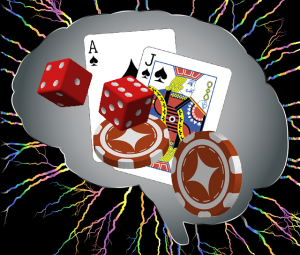Betting Systems vs Gambling Strategies: The difference is bigger than you think!
 Gambling is one of the worlds most popular pastimes. It’s a supreme form of entertainment, and one that tends to cost players money (just like any other form of entertainment). But for some, it’s a profession, and one that can be very lucrative.
Gambling is one of the worlds most popular pastimes. It’s a supreme form of entertainment, and one that tends to cost players money (just like any other form of entertainment). But for some, it’s a profession, and one that can be very lucrative.
There are two general tactics gamblers utilize to increase their odds of winning, and minimize their odds of losing. One is by implementing a betting system. The other is by using a gambling strategy for their game of choice. While these may sound like the same thing, and they do have the same purpose, they are actually quite different.
Betting Systems vs. Gambling Strategies
To better understand the difference between these two casino gambling tactics, we will first look at the precise definition of each word. According to the most appropriate definitions in the English Oxford Dictionary:
Strategy (noun)
A plan of action designed to achieve a long-term or overall aim.
System (noun)
A set of principles or procedures according to which something is done; an organized scheme or method.
A strategy, by definition, is a skillful way of doing things in hopes of achieving a successful result. The ‘long-term‘ aspect is especially important in relation to gambling. Probabilities are always reflected in a bettor’s results, but rarely hold true in the short term. That’s where luck comes in. You could use a specific strategy, get lucky, and win a large amount—or get unlucky and lose a large amount—in the short term. But over an extended period of time, using a strategy should produce the expected results.
A system is completely different. A casino gambling system, in particular, gives the bettor a very precise, unwavering set of rules to abide by. Deviating from the rules, and the whole system falls apart. The use of a system often produces quick, short-term results.
Examples of Casino Strategies
The most common gambling strategy is used in blackjack. Players will make decisions (hit, stand, double, split, etc.) based on the odds of their hand beating the dealer’s hand, without exceeding 21. Using a basic strategy chart and card counting are perfect examples. Professional blackjack players have been known to achieve a theoretical return to player (RTP) of more than 100%, resulting in a positive long-term expectation (i.e. profit)
There are similar strategies that can be applied to other card-based table games, video poker, and even slot machines. Slots may seem completely random, but reading the pay table will tell you what bets to make, and how many paylines to activate, for the highest possible return to player (RTP).
A sports betting strategy can be utilized by handicapping the matches. In layman’s terms, that means investigating the stats for each player and team, looking at their history against a specific team, checking the weather and how teams perform in the heat, rain, snow, etc. Handicapping isn’t a quick strategy, but it can be an effective one.
Examples of Betting Systems
Roulette, baccarat and blackjack are the most common casino games in which betting systems are applied. There are multiple types of systems in use—D’Alembert, Fibonacci, One Half Up, Martingale, Labouchere, etc. Each requires the bettor to start with a very precise number of betting units, and adjust those units in a specific way with each progressive win or loss.
A simpler betting system might include always betting on the favorite in a sporting event. You could bet on the highest ranked tennis player, or the sports team with the best win/loss record of the season. This is much easier than applying a handicapping strategy.
What Works Better?
No betting systems or gambling strategies can guarantee a profit. Games of chance are always effected by a combination of skill and luck. The biggest difference is the time in which you can expect to benefit from them.
To put it simply—when applied correctly—betting systems are easier to use and only offer good short term results. Gambling strategies are more mentally challenging, but provide better long-term results.





